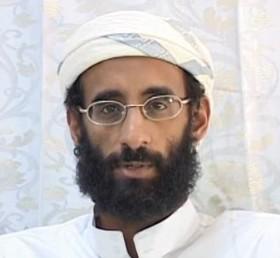On Sept. 30, American drones flew into Yemen, destroying a car and killing Anwar al-Awlaki, an American-born cleric allegedly involved in many terrorist attacks.
Samir Khan, a North Carolina native and editor of Inspire, al-Qaeda’s English-language Internet magazine, was also killed, The New York Times reports. Both of their deaths sparked a debate over the killing of American citizens without charges and/or trial.
“I think one of the strengths of our democracy is when political decisions come up — such as this situation. We have a public debate because we have rights and values written into our constitution,” said Associate Professor of Political Science Kyle Dell.
According to the Washington Post, the American Civil Liberties Union has been fighting the Obama administration through our court system to prevent the killing of American citizens without due process of law. The ACLU objected to the attack in Yemen because, according to their interpretation of the Constitution, the killings violated al-Awlaki and Khan’s rights under the Fourth and Fifth Amendments. The Fourth guarantees safety against unreasonable seizure of a person and the Fifth Amendment guarantees due process of law.
“The attack goes against our policies, rights, and more importantly it exposes our hypocrisy,” said Parveen Hasanali, assistant professor of religious studies. “It would be easier for Americans to identify al-Awlaki as the enemy, but the same principle can be applied to anyone across the board.”
In addition to the debate surrounding the rights of American citizens, another side of the debate contends the U.S. should not have carried out the attack because it further erodes the position of the U.S. in world politics.
“It shows that we can make judgments on subjective analysis,” said Hasanali.
The other side of the debate contends that the attack was the right thing to do.
“Although he did not physically take up arms against the U.S., he clearly incited people and convinced them to become jihadist (a type of religious warrior),” said Robert Duncan, visiting assistant professor of political science. “To me he is fair game and I am weeping no tears for his loss.”
Duncan notes that al-Awlaki was just one of many radical terrorists who have flocked to al-Qaeda’s cause.
“The radicalization of young Muslim men is increasing, and it is frightening” said Duncan. “Fortunately the Federal Bureau of Investigation has been pretty good at spotting this type of activity, and caught many of these people through sting operations.”
Unfortunately, with the rise of radical terrorism, it’s become impossible to fight the movement absolutely. Al-Awlaki’s death is being celebrated as a big victory in the war on terrorism, but some feel that the hostility towards our country and rise of terrorism stems from a more systemic problem.
“If we do not address the issues, they keep coming back,” said Joe Cole, visiting assistant professor of philosophy. “For example, 9/11 was a shock to us, but al-Qaeda had declared war against us because of our behavior.”
Cole gave three issues with our foreign policy to explain the anger al-Awlaki felt towards America.
“The issues result from: the presence of American troops in Saudi Arabia, which is the Islamic Holy land; the deaths of Iraqis in the 1990s as the result of our embargo and continuing to side with Israel over the interests of Palestine,” said Cole.
Al-Awlaki’s death is a small victory in the battle against extremism, but Cole feels we will not win the war until we examine the reasons behind its initial onset.

